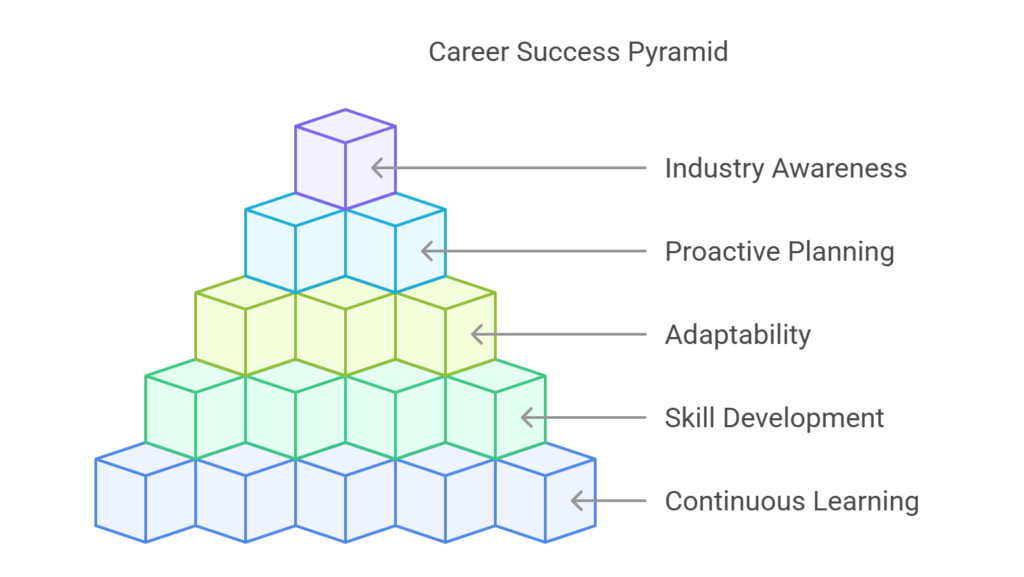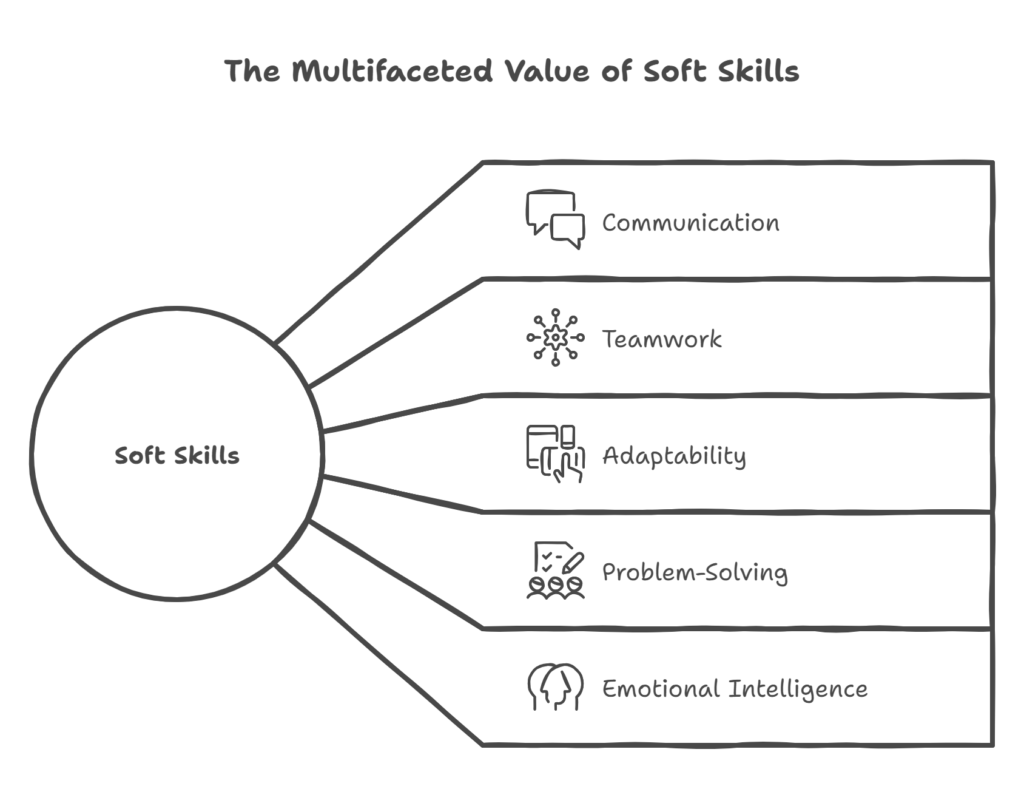The job market is always changing, and staying relevant is more important than ever. With technology advancing quickly, the economy shifting, and new skills being needed, it’s crucial to keep learning and adapting. This article will give you practical tips for staying competitive and compare today’s job market to how things were in the past. By looking at history, we can learn valuable lessons for navigating today’s challenges.

How to Stay Relevant in Today’s Job Market
1. Keep Learning and Improving Your Skills
To stay competitive, you need to keep learning. This means taking online courses, attending workshops, earning certifications, or working on personal projects. Studies show that about half of all workers have taken steps to learn new skills or improve existing ones.
2. Focus on High-Demand Skills
It’s important to know which skills are in demand and work on developing them. Skills like problem-solving, resilience, leadership, and tech knowledge are highly valued by employers. Fields like artificial intelligence (AI), data analysis, cybersecurity, and digital marketing are especially hot right now.
3. Be Flexible and Take Initiative
The job market is always changing, so being adaptable and proactive is key. Instead of fearing change, see it as a chance to grow and learn.
4. Highlight Your Unique Strengths
What makes you different? Show off your unique talents, interests, and experiences to stand out from others.
5. Find a Mentor
Connecting with someone who has more experience in your field can give you great advice and help you navigate the job market.
6. Stay Updated on Trends
Keep an eye on what’s happening in your industry. Knowing the latest trends will help you make smarter career decisions.
A Step-by-Step Plan for Upskilling
Here’s a simple roadmap to help you improve your skills:
- Evaluate Your Current Skills: Take stock of what you already know. List them on a piece of paper.
- Find Skill Gaps: Figure out what skills you need to reach your goals.
- Understand the Benefits: Recognize how learning new skills will help your career.
- Set Clear Goals: Decide what you want to achieve.
- Choose How to Learn: Pick the best way to learn, like online courses or workshops.
- Create or Join Training Programs: Either design your own plan with free resources like YouTube or join programs offered by others.
- Get the Right Resources: Make sure you have access to the tools and materials you need.
- Track Your Progress: Regularly check how you’re doing and get feedback.
- Use Your New Skills: Apply what you’ve learned to new opportunities. This is most crucial when it comes to staying relevant.
- Keep Learning: Make learning a lifelong habit. 🙂
Example: PwC’s Upskilling Program
PwC, a global company, realised its employees needed better digital skills. They created a program to teach things like data analysis, AI, and blockchain. They used fun methods like podcasts and games to make learning engaging.
Looking Back: How the Job Market Has Changed
Jobs in the Past
In the past, you didn’t always need a lot of education to get a good job. Companies often trained employees on the job, so people could move up in their careers without needing many qualifications.
More Competition Today
Now, there are more people with degrees and certifications competing for fewer jobs. This means employers can be pickier, and wages don’t always keep up.
Technology’s Impact
The internet has changed how jobs are advertised and how people apply for them. Automation has also replaced some jobs, so workers need to learn new skills to stay employable.
What’s the Same and What’s Different?

- Adaptability is Always Important: Whether in the past or today, being able to adapt has always been key to staying relevant.
- Change Happens Faster Now: Technology has sped up how quickly things change.
- Education Matters More: While education wasn’t as important in the past, it’s now a big factor for employers.
- Soft Skills Are Valued: Today, skills like communication and teamwork are just as important as technical knowledge. 🤩
Final Thoughts
To stay relevant in today’s job market, you need to keep learning, develop skills that are in demand, and be ready to adapt to change. Looking at history shows us that being proactive about your career has always been important, but it’s even more critical now because of how fast things are changing. By following a clear plan for learning and staying informed about your industry, you can set yourself up for success in the modern world of work.

